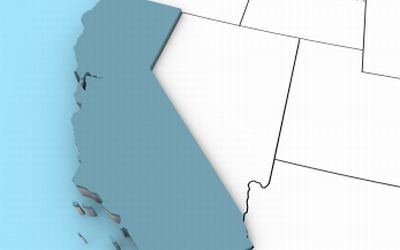The California Ballot Initiative (CBI) was created in 1911 as a reform movement to stop the undue influence of big business and political corruption, but it has, over time, become a tool of big business and special interest groups.

Readers of this publication are quite familiar with Californias much maligned Prop 65. Prop 37 (about GMO labeling of foods) is a full-blown war where the opposition has spent more than $1 million a day to kill Prop 37. However, a small, under-fundedbut well-intendedgroup of organic food champions were battling back. Even though Prop 37 failed, the issue of genetically modified organism (GMO) labeling is now a national discussion as well as the start of another chapter in the long history of California ballot initiatives.
Out of curiosity, I surveyed several colleagues in the industry about their knowledge of how propositions are passed in California. It turns out, you could fit the industrys California proposition cognoscenti into the backseat of a 1965 VW Bug. This article, I hope, will help change that.
A Brief Civics Review
The United States is a federal Republican form of government. We elect representatives who, in turn, pass laws on our behalf. This process, while much admired, is susceptible to cronyism and the influence of money and power. Yesshocking, I know.
In the early 1900s, California state government was largely in the pocket of the Southern Pacific Railroad and its many friends. In 1911, a reformist fervor lead by Gov. Hyrum Johnson created the California Ballot Initiative (CBI). The CBI has three elements:
Citizen initiatives that, if passed on the California ballot, become California law (also known as propositions).
Referendums that, like initiatives, are a citizen-sponsored, citizen-driven process to repeal laws passed by Californias legislature.
Recalls, which are a means to get rid of elected officials.
This form of direct democracy was intended to allow citizens to pass laws, essentially to override the power and influence of wealthy individuals or corporations that unduly influence elected officials. This is a worthy idea that exists in a number of states. Unfortunately, the CBI has turned the proposition into a weapon used by large corporations and special interest groups to do precisely what it was created to prevent.
For example, in 1963, Proposition 15 banned cable television. This proposition was sponsored by California theater owners who, sensing the threat of cable television competition, used the battle cry free TV for all." It worked. In 1964, the California Supreme Court ruled this proposition unconstitutional (something to do with free speech).
Today, the problem with Californias initiative system is as follows:
California is the worlds eighth-largest economy. Propositions that are approved become California law. California law is de facto U.S. law, for commercial purposes. Unlike Las Vegas, what happens in California affects everybody.
Propositions require ballot signatures. The number of signatures is a percent based on the prior gubernatorial election. Currently, that number is 5 percent (504,760 signatures). Collecting ballot signatures for propositions is now a well-oiled and profitable business. Deep pockets can create or kill propositions, simply by controlling the signature acquisitions. Currently, the average cost to acquire enough signatures for an initiative is $1.85 million to $3 million.
Special interest groups are now proficient at writing initiatives. For example, Prop 37 was written by a well-known Prop 65 plaintiffs lawyer.
Some initiatives include bounty hunter clauses used by law firms, public interest groups or others that bring citizen cases (not cases brought by the State of California) and who collect a percent of the settlement or judgment resulting from such cases. Hundreds of supplement companies have been hit with Prop 65 cases, forcing them to spend tens or hundreds of thousands of dollars in defense costs and, ultimately, end up settling meritless cases.
Changing or revoking initiatives turns out to be notoriously difficult and in recent years, has seldom happened. This is the nature of politics.
An Initiative on Initiatives
Initiatives are used to target competitors or to Robin Hood" industries doing business in California. It is time for the natural products industry (supplements, organic foods, cosmetics, pet products, etc.) to develop an integrated strategy that begins with a broad understanding of how the CBI works, monitor budding initiative ideas and create an early warning system to sound the alarm when needed. Maybe it is time for an initiative on initiatives.
Loren Israelsen is executive director of the United Natural Products Alliance (UNPA), a trade association of dietary supplement companies committed to safety, science and quality. He has been involved in the commercial and regulatory issues facing the global dietary supplement industry since 1980.
Learn how Prop 65 affects the supplement industry in these INSIDER articles:
"Prop 65 Update" by Merle Zimmermann
"Prop 65: A Immodest Proposal" by Robin Koon
About the Author(s)
You May Also Like






.png?width=800&auto=webp&quality=80&disable=upscale)